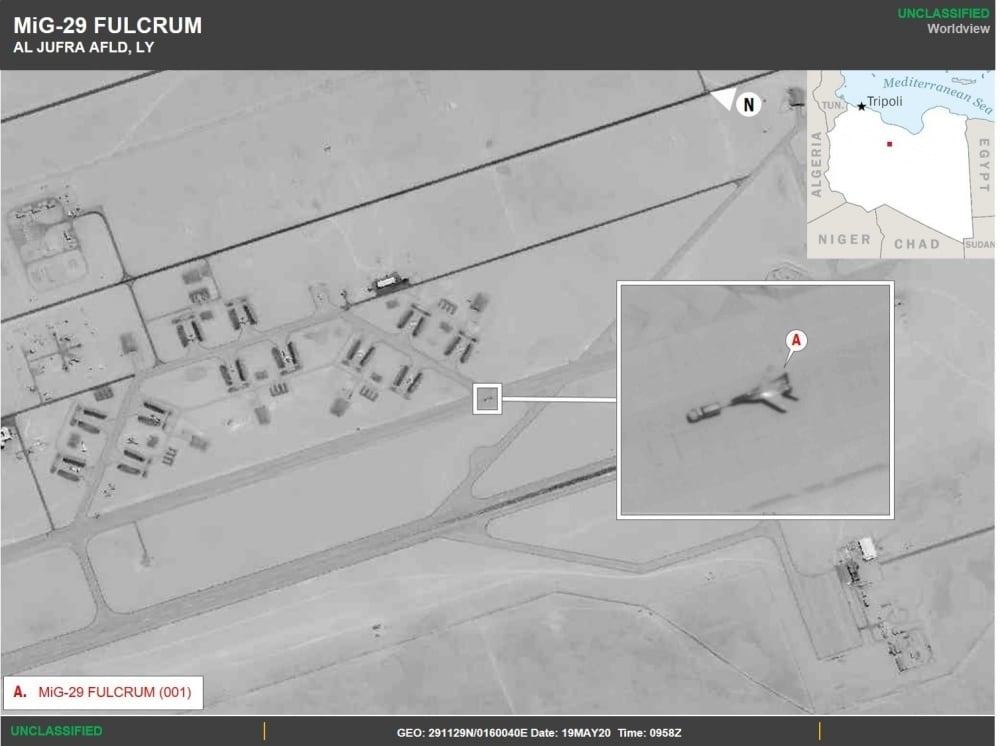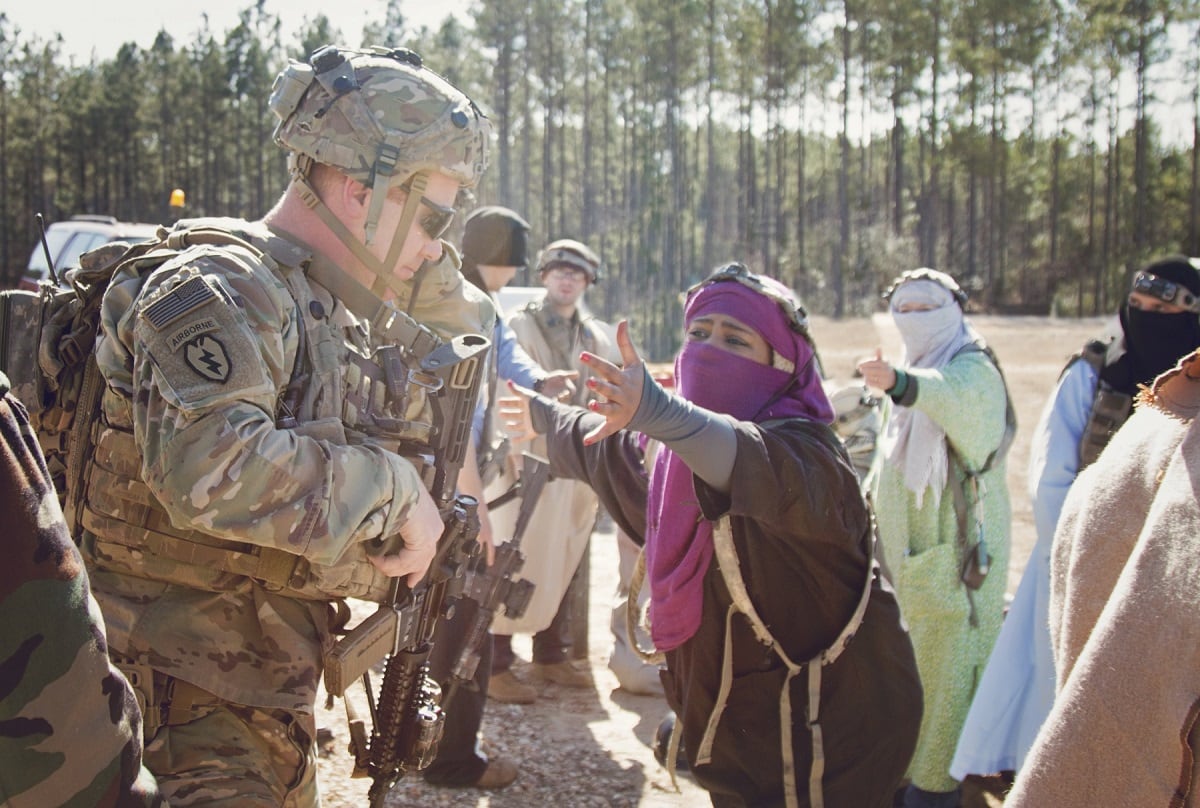U.S. Africa Command is looking to use an Army Security Force Assistance Brigade in Tunisia, the general helming it said Friday, adding that he is concerned over Russian weaponry and personnel in neighboring Libya.
“As Russia continues to fan the flames of the Libyan conflict, regional security in North Africa is a heightened concern,” said AFRICOM commander Army Gen. Stephen Townsend following a meeting with Tunisia’s defense minister. “We’re looking at new ways to address mutual security concerns with Tunisia, including the use of our Security Force Assistance Brigade,” or SFAB.
AFRICOM added in a follow-on statement that the SFAB is part of the U.S. security assistance program, and “in no way implies combat military forces” are being considered.
Elements of the 1st SFAB, out of Fort Benning, Georgia, were sent to Africa for the first time in March, where they trained Senegalese troops on logistics and vehicle recovery. Army officials also said recently that the service plans to align the 2nd SFAB, based at Fort Bragg, North Carolina, with missions on the African continent.
The bilateral meeting between Townsend and Tunisian officials came months after the country completed its second presidential election since a 2011 uprising ousted longtime president Zine El Abidine Ben Ali, sparking the Arab Spring. Since the revolution, the U.S. government has invested more than $1 billion in the Tunisian military, according to AFRICOM.
Last week, U.S. officials released pictures purporting to show that Russia dispatched MiG-29 aircraft to Al Jufra Airfield in Libya to provide close air support and offensive fires for Russian military contractors fighting on behalf of Khalifa Hifter, a Libyan military commander. Hifter’s forces have been battling the UN-recognized Government of National Accord near Tripoli for roughly a year.

The Russian contractors on the ground allegedly come from Wagner Group, a private military company with Kremlin connections that U.S. officials have long said acts as a Russian proxy force in places like Syria and Ukraine.
“Russia is executing the same playbook as it successfully employed in Crimea, Ukraine and to a lesser extent in Syria. Russia has proved its willingness to violate the sovereignty of those nations, and appears willing to do the same in Africa,” said AFRICOM deputy director for intelligence Brig. Gen. Gregory Hadfield on Friday during a call with reporters.
U.S. officials said that at least 14 Russian aircraft dispatched to Libya first stopped in Syria for paint jobs to conceal their origins.
Former Russian Air Force chief and current member of parliament Viktor Bondarev called AFRICOM’s allegation “crazy," adding that “if there are any airplanes in Libya, they are Soviet, not Russian.”
The aircraft in Libya are a mix of unmarked MiG-29 fighters and Su-24 fighter bombers, neither of which were previously in the Libyan inventory, according to Hadfield.
“So we are confident that these aircraft were not there, and were not older aircraft that had been maintained,” Hadfield said, noting his concern over Russia’s regional ambitions. “If Russia secures a permanent position in Libya and, worse, deploys long range missile systems, it will be a game changer for Europe, NATO and many Western nations."
The alleged increase in Russian intervention comes as Hifter’s forces were rolled back from Tripoli in mid-May by the UN-backed government aided by armed Turkish drones.
If true, the addition of more Russian military hardware adds another violation of the arms embargo imposed on Libya nine years ago. Several countries, including the United Arab Emirates, Egypt and Turkey, have been previously named by the UN as embargo violators.
Kyle Rempfer was an editor and reporter who has covered combat operations, criminal cases, foreign military assistance and training accidents. Before entering journalism, Kyle served in U.S. Air Force Special Tactics and deployed in 2014 to Paktika Province, Afghanistan, and Baghdad, Iraq.




